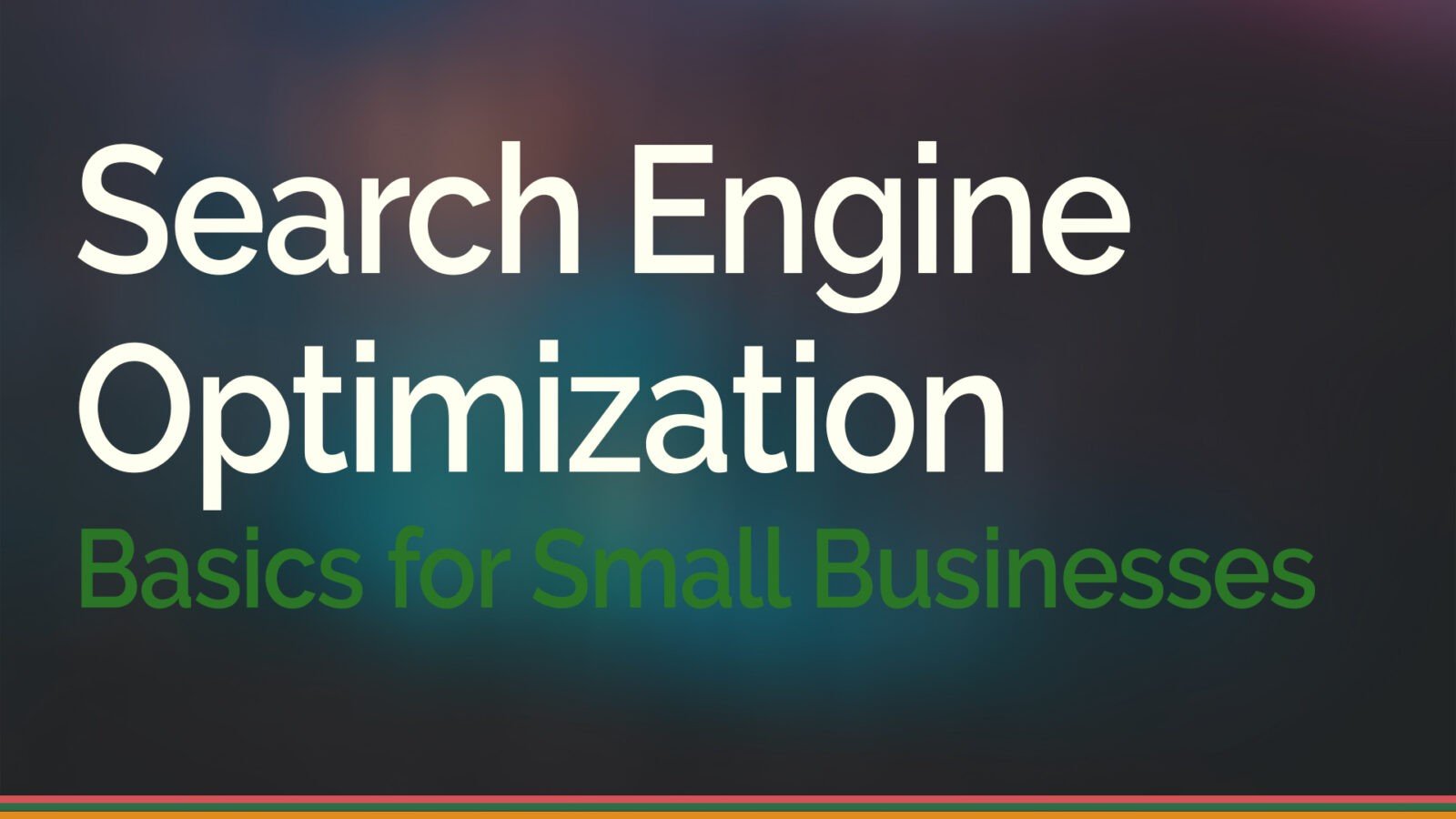In the modern digital landscape, it’s no longer enough for a business just to exist online; it must be visible. For small businesses, effective Search Engine Optimization (SEO) is one of the most important strategies to increase that visibility and stand out in a crowded marketplace. At Neocube, we specialize in helping small businesses like yours not only establish an online presence but also thrive through effective digital marketing strategies and custom web application development.
This blog will dive into the fundamentals of SEO for small businesses, helping you understand how to compete in a niche market and find your “small pond” where your business can shine.
Table of Contents
Why SEO is Crucial for Small Businesses
Being a small business often means having limited resources compared to larger competitors. This is why finding your niche—your “small pond”—is essential. SEO allows you to target specific customers who are looking for the products or services you offer, helping you avoid competing directly with the giants in your industry.
Key Benefits of SEO for Small Businesses:
- Increased Online Visibility: SEO helps your website rank higher in search engine results, making it easier for potential customers to find you.
- Targeted Traffic: SEO brings in customers who are actively searching for products or services like yours, increasing the likelihood of conversions.
- Cost-Effective Marketing: Unlike paid advertising, organic SEO strategies can deliver long-term results without requiring constant investment.
Conduct Keyword Research
Keyword research is the cornerstone of any successful SEO strategy. It involves identifying the search terms and phrases that potential customers are using to find businesses like yours. As a small business, you need to target specific, long-tail keywords that relate to your niche market. These keywords typically have less competition and are more likely to attract customers who are ready to buy.
How to Conduct Keyword Research:
- Use tools like Google Keyword Planner, Ahrefs, or Ubersuggest to find relevant keywords in your niche.
- Focus on keywords with a lower search volume but high relevance to your business.
- Include local keywords, such as “[Your Service] in [Your City],” if you serve a specific geographic area.
For example, if you own a bakery in New York City, instead of competing for broad keywords like “bakery,” focus on more specific terms like “best gluten-free bakery in NYC.”
Optimize Your Website’s On-Page SEO
Once you have a list of target keywords, the next step is to incorporate them into your website’s content. On-page SEO refers to the optimization of individual web pages to rank higher in search engine results.
Best Practices for On-Page SEO:
- Title Tags and Meta Descriptions: Ensure that your title tags and meta descriptions include your target keywords. These elements appear in search results and can significantly impact your click-through rates.
- Headers: Use keyword-rich headers (H1, H2, H3) to structure your content. Headers make it easier for search engines to understand your content and for users to navigate it.
- Internal Linking: Link to other relevant pages on your site to create a web of related content. This helps search engines crawl your site more effectively.
- Alt Text for Images: Use descriptive alt text for images, incorporating keywords where relevant. This not only improves accessibility but also boosts your image search rankings.
At Neocube, we focus on creating well-structured, SEO-optimized websites that cater to your business needs and attract organic traffic.
Create High-Quality, Relevant Content
Content is king when it comes to SEO. Regularly publishing valuable, relevant content on your website helps build authority in your niche and keeps visitors engaged. It’s important to create content that not only appeals to search engines but also answers the questions your audience is asking.
Types of Content to Consider:
- Blog Posts: Write articles on topics relevant to your industry. For example, if you run a local gym, you could create content on “The Benefits of High-Intensity Interval Training.”
- Case Studies: Showcase how your products or services have helped customers, providing real-life examples of your business’s value.
- Guides and How-Tos: Provide in-depth guides on topics related to your industry. For example, a plumbing business could offer a guide on “How to Fix Common Household Leaks.”
Remember to optimize each piece of content with the right keywords and ensure it provides value to your target audience. You can link to external sources for further credibility, like this Google Search Central Guide on SEO.
Local SEO: Focus on Your Community
For many small businesses, local SEO is one of the most effective ways to gain visibility. Local SEO focuses on optimizing your online presence to attract business from local searches. This is especially critical for businesses that rely on foot traffic or local clients.
Local SEO Tips:
- Google My Business: Set up and fully optimize your Google My Business profile, ensuring your contact information, hours, and services are up-to-date.
- Local Citations: Get your business listed on local directories like Yelp, Yellow Pages, and TripAdvisor.
- Local Keywords: As mentioned earlier, include location-specific keywords in your website content.
For example, a dentist in Chicago should optimize for keywords like “best dentist in Chicago” or “emergency dental services in Chicago.”
Build Quality Backlinks
Backlinks—links from other websites that point to your site—are a key factor in SEO rankings. However, not all backlinks are created equal. The quality of the backlinks matters more than the quantity. Links from high-authority sites signal to search engines that your website is trustworthy and relevant.
How to Build Quality Backlinks:
- Guest Blogging: Write articles for reputable websites in your industry and include a link back to your site.
- Partnerships: Collaborate with other businesses for cross-promotion and link-sharing.
- Local News Features: Get featured in local publications, which can often provide backlinks to your website.
Building a strong backlink profile takes time, but it’s an essential part of any SEO strategy. For more insights on backlink strategies, check out Ahrefs’ Link Building Guide here.
Monitor and Improve Your SEO Performance
SEO isn’t a one-time effort; it requires continuous monitoring and adjustments. Use tools like Google Analytics and Google Search Console to track your SEO performance. Monitor metrics such as organic traffic, keyword rankings, and conversion rates.
Key Metrics to Monitor:
- Organic Traffic: Measure how much traffic is coming to your site through organic search.
- Bounce Rate: This tells you how many visitors leave your site without interacting. A high bounce rate might indicate that your site isn’t providing what users are looking for.
- Keyword Rankings: Track where your website ranks for your target keywords.
At Neocube, we provide ongoing SEO services to ensure your website’s performance continues to improve, helping you maintain a strong online presence in your niche market.
Conclusion: SEO is Essential for Small Business Growth
For small businesses, SEO is not just about competing with industry giants—it’s about finding your place in the market, your “small pond.” By implementing effective SEO strategies, you can increase your online visibility, drive targeted traffic, and grow your business.
At Neocube, we specialize in helping small businesses optimize their digital presence through SEO, digital marketing, and custom web development. Let us help you build a website that not only looks great but performs exceptionally in search results.





